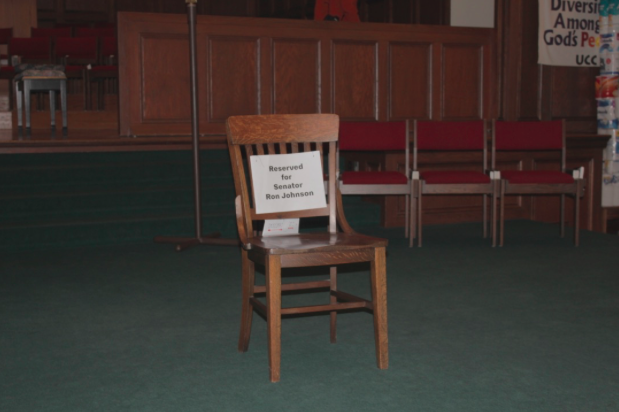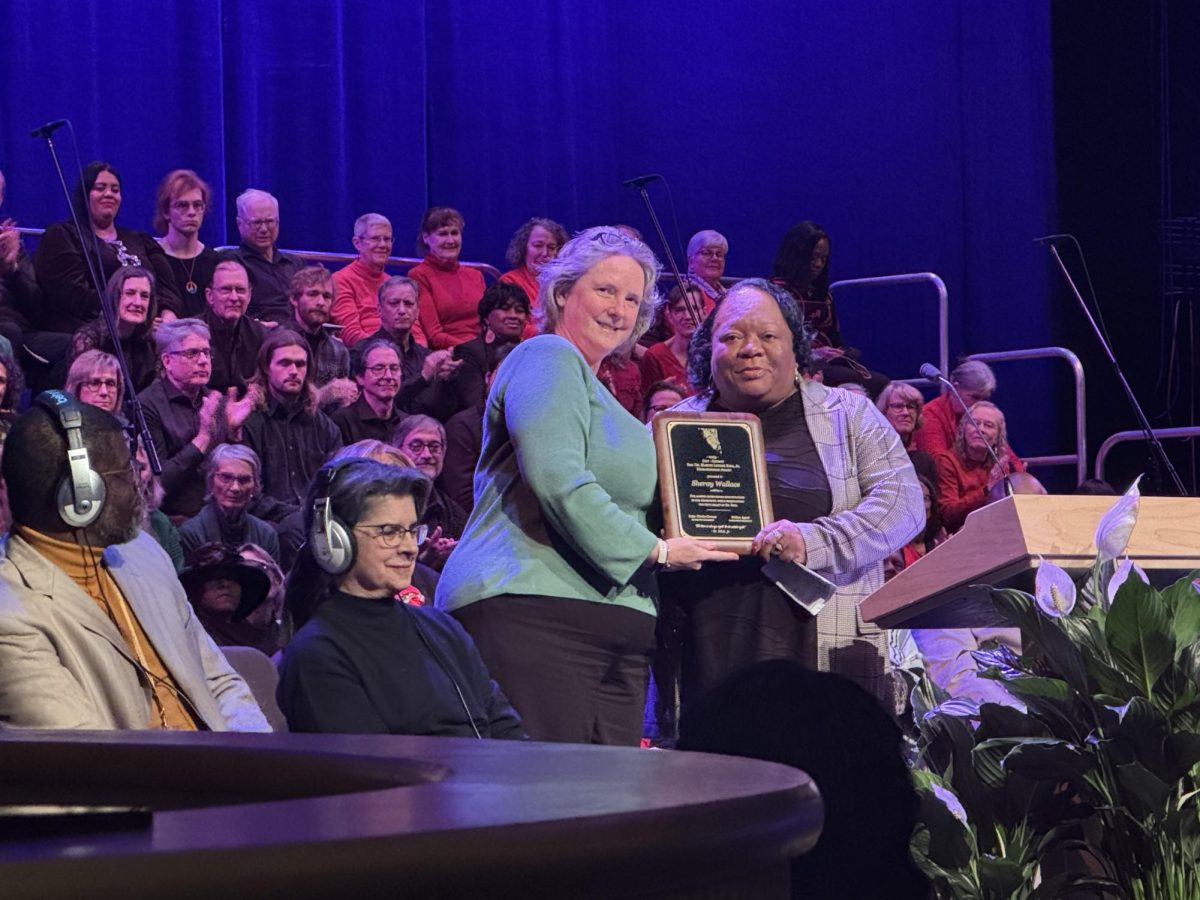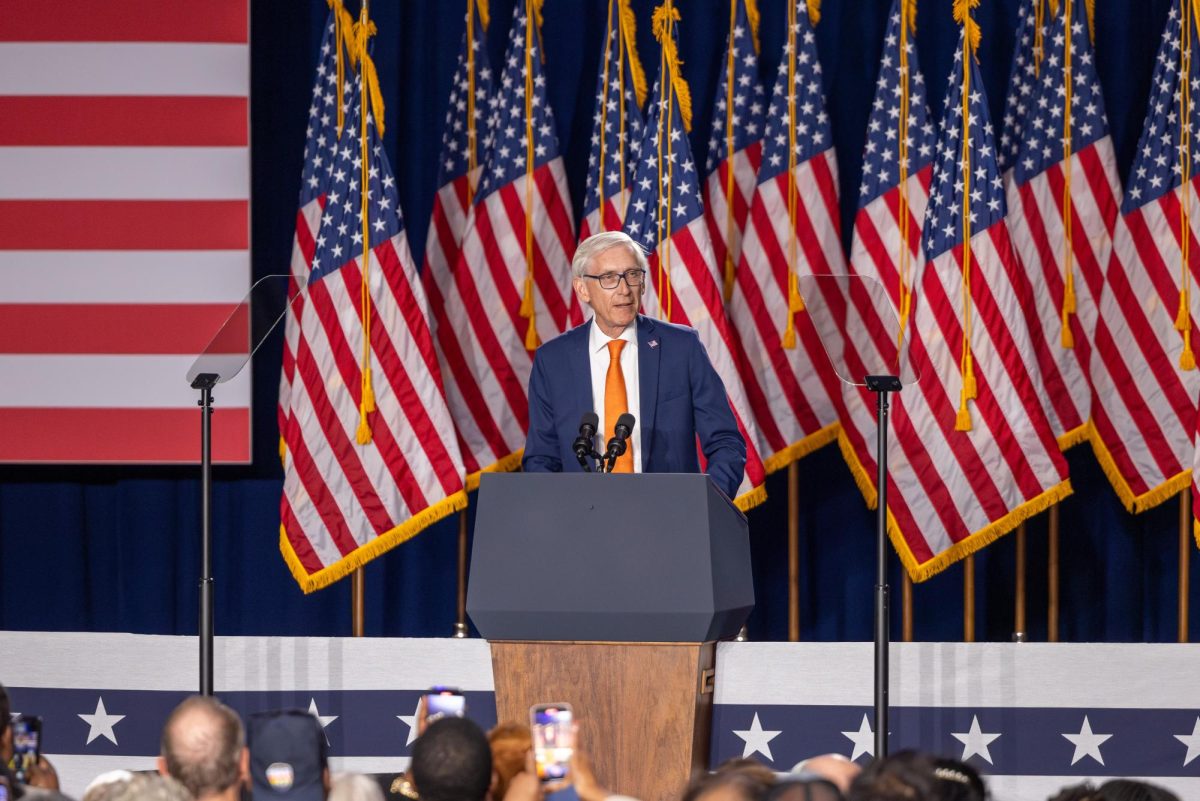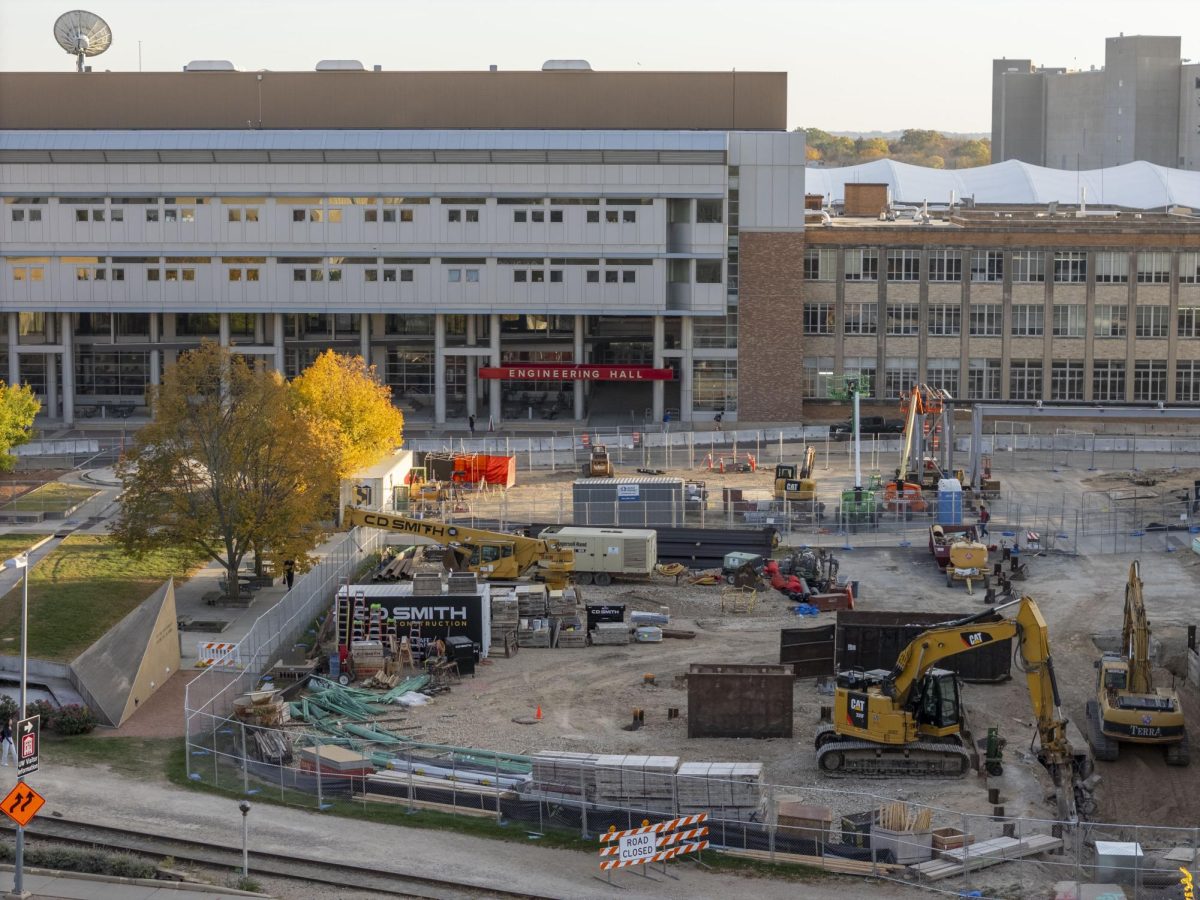An open chair town hall meeting scheduled at the First Congregational United Church of Christ took an unexpected turn when Sen. Ron Johnson, R-Wis., who was invited to the event by his constituents, failed to make an appearance.
Originally, the Wednesday question-and-answer session between the Wisconsin senator and Madison-area voters was supposed to be held at the Middleton Public Library. When the event attracted an audience larger than expected, the hosts changed the venue.
Despite the absence of Johnson, Wisconsin citizens continued to voice their concerns and views on current political issues, directing it at a video live-stream that will later be presented to Johnson.

Several speakers commented on the immediate absence of the senator, shouting phrases such as, “Your duty is to us, to represent all of us — not the Republican party of Donald Trump.”
Though many concerns and issues, such as gun control, funding for Planned Parenthood, LGBTQ+ rights and the environment, were directed at Johnson, three topics were repeated by several speakers: healthcare, President Donald Trump’s possible ties to Russia and fair representation of all citizens.
When Colleen Hartung of Sun Prairie, Wisconsin took the microphone, she first expressed to the camera, “I really hoped to speak to you about this in person,” before revealing three of her children have been diagnosed with Cystic Fibrosis.
Hartung, like many speakers, expressed concern about loved ones, including veterans, senior citizens, people fighting addiction and young people starting off careers, having access to a meaningful form of healthcare.
Ted Gramski, a member of the Democratic Socialists of America, proposed that Medicare be expanded to cover all people — which was met with widespread applause.
Throughout the meeting, several speakers, including Madison resident Mike Duncan, raised issue about the Trump administration.
“Mr. Trump is not mentally stable,” Duncan said.
Along with concern for Trump’s governing ability, several speakers voiced their desire for the president to release his tax returns for the purpose of uncovering any potential personal or business ties, particularly with Russia.

Executive order impacts students, faculty, researchers on campus, forcing many to speak out
Adding onto the critique of the Trump administration, Daniel Zinn, a University of Wisconsin student and member of UW Amnesty International, pointed to the president’s recent executive order. Taking a stance against the order, Zinn said the country needs to start taking in refugees and helping immigrants, especially those from predominantly Muslim countries.
As an immigrant from Iran, Shabnam Lofti, a local immigration lawyer, spoke about her family’s experiencing coming to the U.S. and working their way to achieve their “American Dream.”
“Being an immigrant — it means searching for a chance to live a meaningful life, starting from the very bottom,” Lofti said.
Moving forward, Lofti said we as a society must take the time to listen to each other and learn to attack the merits of an argument instead of the person behind it.
The meeting concluded with speakers encouraging citizens to actively engage their representatives so they can be able to sway political conversations.
“The world is a better place when ordinary people care,” Lofti said. “You’re more powerful than you think you are and your country needs you now.”
This article has been updated to accurately reflect Shabnam Lofti’s statements at the event. The Badger Herald regrets this error.













